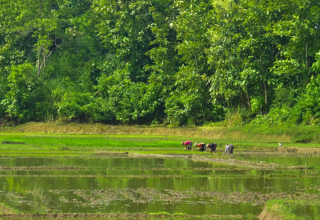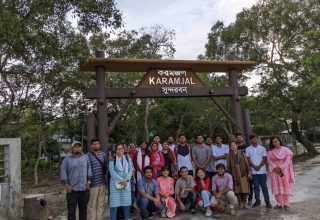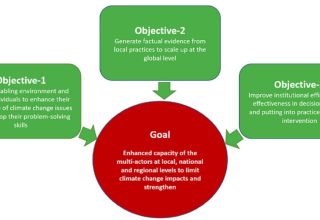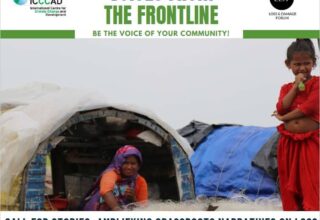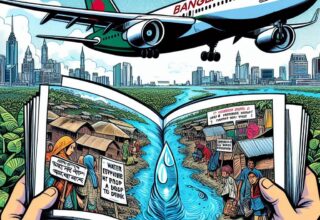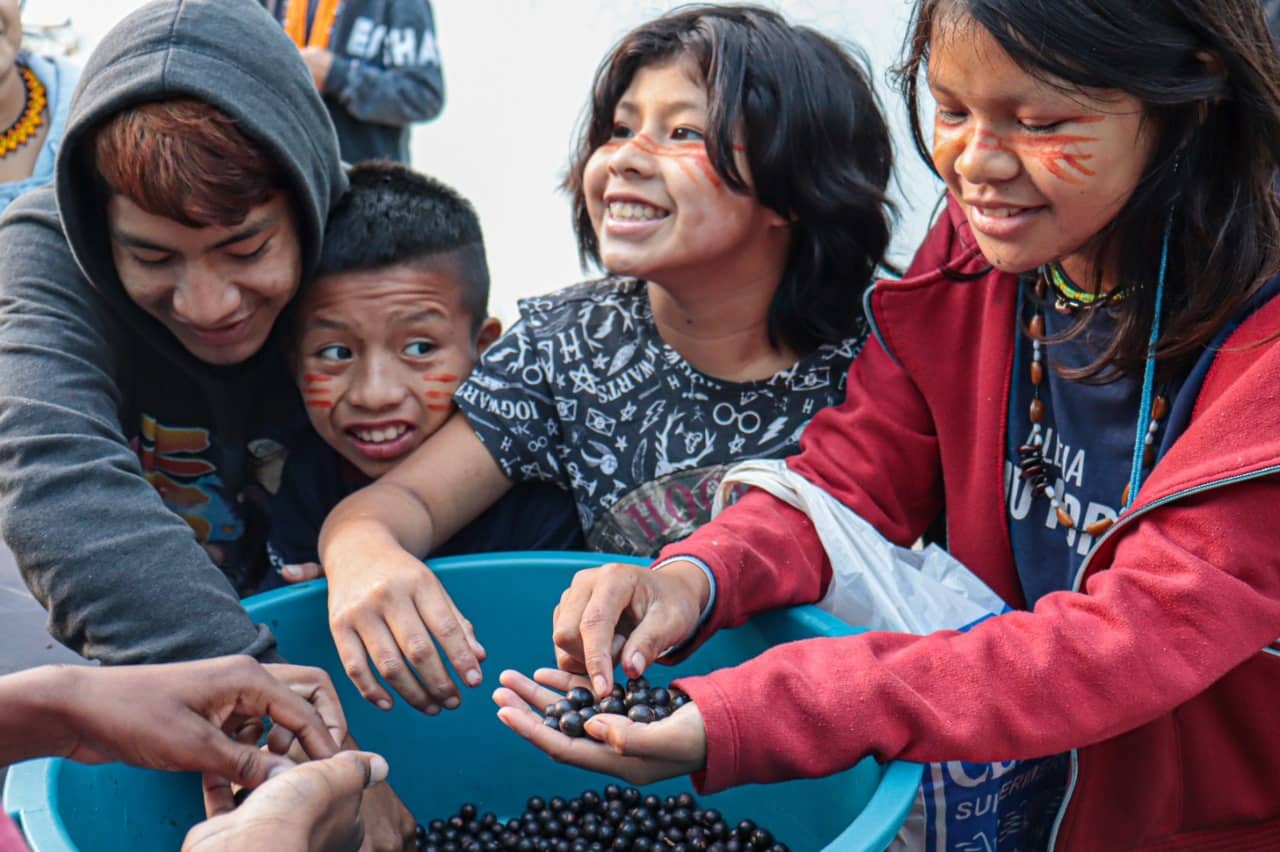
Innovation does not only mean new technologies, but also different approaches to implement practices, business models and promote behavioral changes.
UNDP has worked with partners and countries since 2008 to mobilize US$1.2 billion from vertical funds and bilateral donors and leveraged an additional $3.1 billion from public and private partners via co-financing to implement 220 adaptation projects across 93 countries. Many of these projects are innovative, some are groundbreaking.
In this line of thinking, UNDP believes that promoting adaptation strategies within vulnerable communities at the grassroots level is an effective approach to enhancing their capacity to withstand the impacts of climate change. This lies at the heart of the Adaptation Fund Climate Innovation Accelerator (AFCIA), a UNDP-managed programme that aligns with the implementation of both the Paris Agreement and the 2030 Sustainable Development Agenda. In this Climate tribune Magazine edition, readers are invited to read stories about the innovative solutions supported by the UNDP-AFCIA programme.
The UNDP-AFCIA programme sits under the UNDP-led multi-partner platform, the Adaptation Innovation Marketplace. Launched by the UNDP Administrator Achim Steiner in 2021, this strategic platform aims to promote scaled-up climate change adaptation at the local level, focusing on civil society, non-government organizations, women, and youth innovators. The marketplace crowds in resources, know-how, and technical support to facilitate local access to climate change adaptation finance.
UNDP-AFCIA is a $16 million programme funded by the Adaptation Fund and the European Union and it is designed to support the development of locally-led, innovative adaptation practices, tools, and technologies in communities from developing countries. It is currently supporting 44 civil society organizations across 33 countries globally, through the award of micro ($60,000) and small grants ($125,000).
The UNDP-supported programme is on track to develop more than 20 scalable innovative adaptation solutions, benefiting a substantial 634,000 people, with almost half of them women. Grantees have achieved remarkable outcomes, including raising more than $1 million through crowdfunding efforts. Notable successes encompass extensive environmental restoration, with the implementation of regenerative agricultural practices on more than 1,660 hectares of land and the documentation of more than 50 traditional knowledge-based climate adaptation measures.
Over the past two years, we’ve witnessed remarkable changes focusing on the grassroots level, driven by the dedication of these remarkable community leaders. These groundbreaking solutions have been tailored to the unique circumstances and requirements of each community. From Asia to America, we’ve gained insights and knowledge, and played a role in expanding these initiatives using UNDP-AFCIA’s resources.
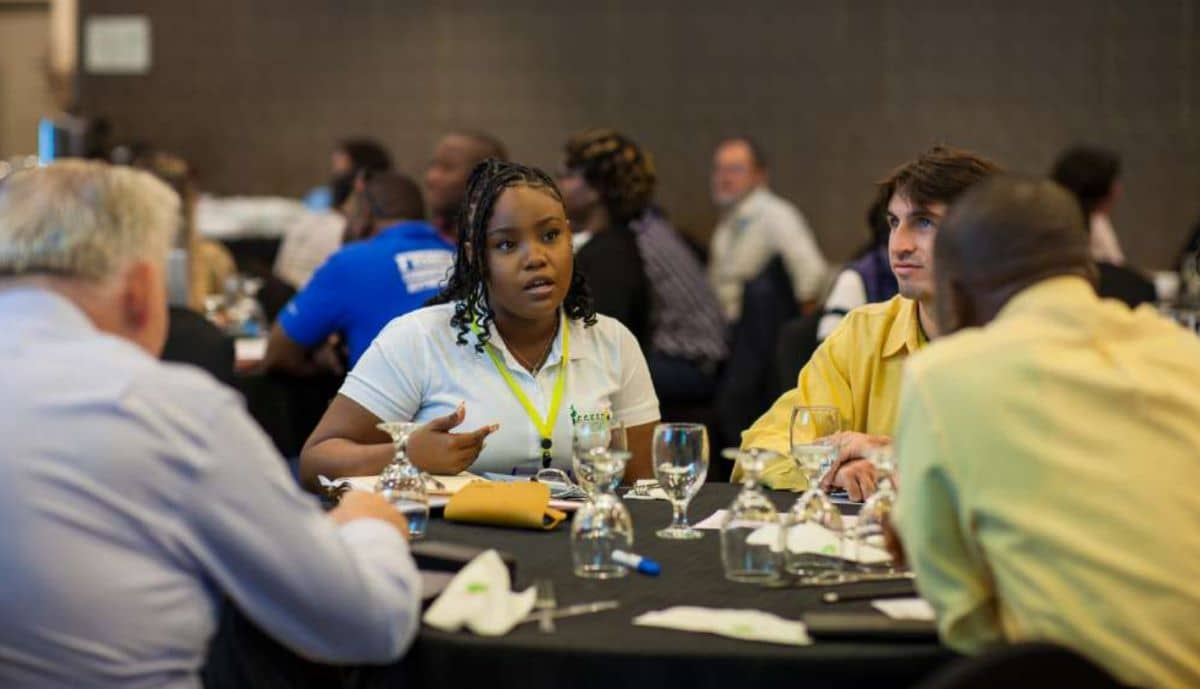
In Brazil, for example, local partner Centro Ecologico is improving food security and protecting the local ecosystem for Indigenous Peoples by introducing and expanding the production of acai berries; in Cambodia, 40 women are benefiting from growing and selling of crickets, earning $2,600 for the first tonne of crickets that was farmed as an alternative food source lead by the Centre for Livestock and Agriculture Development (CelAgrid); in Uganda, local partner Sample Uganda Aquaponics Association is training local communities aquaponics technology through an innovative lease-to-own model to promote aquaponics and horticulture-related production targeting an expansion plan of reaching $21 million of the local vegetable and fish market; in Colombia, Clean Tech Hub aims to inspire, mobilize, connect, and catalyze green entrepreneurship through turnkey programs with hundreds of startup businesses.
“While UNDP-AFCIA is a recent initiative, it’s crucial to note that this community-centered approach is not new”
While UNDP-AFCIA is a recent initiative, it’s crucial to note that this community-centered approach is not new. UNDP has been providing support to NGOs, civil society organizations, Indigenous Peoples, and local communities for more than three decades in identifying, planning, executing, and assessing local projects aimed at tackling a range of local, national, and global concerns. Some of the UNDP-led programmes that support locally led action and sustainable entrepreneurship include the GEF-Small Grants Programme, the UNDP Accelerator Labs, the Equator Prize or the Ocean Innovation Challenge, and they focus in different stages of ideation, incubation and acceleration. The UNDP-AFCIA programme and the AIM platform focus on the acceleration stage.
We believe that by setting up pilot projects and carefully monitoring their results, insights and best practices can be fed into policy processes, helping to scale up successful approaches. Likewise, sharing best practices can help individuals/organizations in different regions of the world to better prioritize their options based on need and capacity.
With one of UNDP-AFCIA programme’s objectives to facilitate the exchange of experience and enhance the knowledge base of these local champions, UNDP recently hosted the 2023 UNDP-AFCIA Global Workshop from 17-19 October in Manila, the Philippines, where we spotlighted a diverse range of innovative solutions bolstered by these small grants. This event brought together participants for training, peer-to-peer learning, and networking sessions covering topics such as ‘Funding Approaches for Sustainable Development,’ ‘Impact and Business Development,’ and ‘Funding and Innovation.’
On the other hand, UNDP-AFCIA is strongly focusing in supporting the local partners to accelerate their work by providing them with specialized technical assistance, networking platforms, collaboration with top MBA and EMBA University programmes, engaging them with family investment offices, philanthropy and corporate foundations to support adaptation innovations and exploring together innovative ways for sustainable finance, such as blended finance approaches to scale up their solutions.
The commitment of these local partners extends far beyond our programme, warranting international acknowledgment and assistance, as demonstrated by UNDP-AFCIA cohort-one Dipayan Dey (from South Asian Forum for Environment) and Tzinnia Carranza (from Espacio de Encuentro de la Culturas Originarias A.C.), both finalists in the Local Adaptation Champions Awards 2023 under the “Business Adaptation Solutions’’ and “Capacity Building” categories respectively. From UNDP-AFCIA cohort-two we would also like to recognize Shah Rafayat from Footsteps Bangladesh and Unathi Sihlahla from INMED South Africa, who are also finalists in the same award under the “Business Adaptation Solutions’’ category. We look forward with anticipation to the December ceremony hosted by the Global Centre for Adaptation, and we take immense pride in having one of our grantees showcased in this prestigious event.
All of this intense and successful work was made possible with the support of numerous partners and the inspiration from individuals like Professor Saleemul Huq. As we were finalizing this editorial, we received the sad news of his passing on October 28th
Saleemul Huq was a brilliant scientist whose expertise and generosity led to the establishment of numerous networks aimed at bolstering community resilience. His contributions extended beyond the realm of climate change discourse, as he dedicated tireless efforts to seeking and advocating for solutions to adapt to a changing climate. He understood the imperative for developing nations to adapt to a warming planet and devoted many years of his life to bringing critical issues like loss and damage to the forefront of UN negotiations. In 2022, he earned the distinction of being selected as one of Nature’s top 10 scientists, recognized as a pioneering figure in the field of climate science.
“Transformative adaptation action is only possible by ensuring that communities, enterprises, and local actors are at the heart of driving this change”
He served as the head of the International Center on Climate Change and Development (ICCCAD) in Bangladesh, a pivotal partner for us. Personally, I had the privilege of meeting him in Bangkok last May 2023 at the CBA17 Conference, where we had a meaningful conversation about the UNDP-AFCIA program and the remarkable work being undertaken by ICCCAD. I also mentioned to him our plan to highlight impactful stories from the field in this version of the Climate Tribune Magazine. He provided full support through his ICCCAD colleagues to co-develop some of these stories, and expressed genuine interest in reading and learning from the innovative solutions put forth by these local champions.
We dedicate these stories to him and the monumental contributions he made for the betterment of our planet.
You can discover more remarkable projects from our grantees in the upcoming edition of Climate Tribune Magazine, where you’ll have the opportunity to delve into 8 personal stories of these local champions who inspire their communities to join the battle against climate change.
Transformative adaptation action is only possible by ensuring that communities, enterprises, and local actors are at the heart of driving this change. Working together with our partners we are confident that local communities and stakeholders can innovate and accelerate adaptation, finding more solutions for resilience building.
Enjoy the stories!
Authors: Monica Borrero, Global Programme Manager, UNDP- Adaptation Fund Climate Innovation Accelerator (AFCIA) United Nations Development Programme (UNDP).

